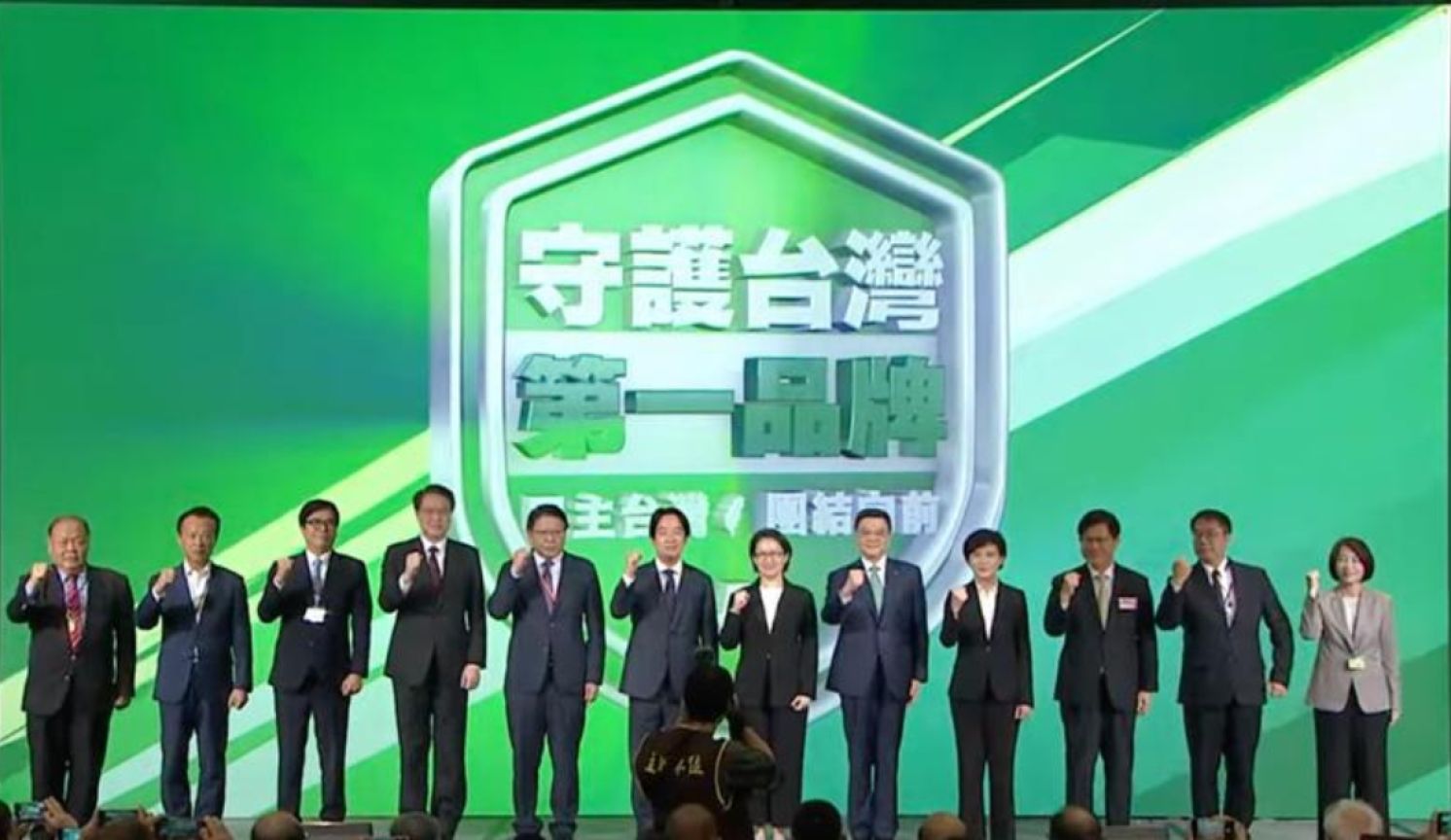
Truth Behind Desinicization of Taiwanese Hokkien
Huang Chih-hsien, China Times, July 23, 2024
In-party fighting occurred during the just concluded National Congress of the Democratic Progressive Party (DPP). A New Tide Faction member of DPP’s Central Executive Committee who is a supporter of Cheng Wen-tsan, former vice premier and Taoyuan mayor, cast an invalid vote, causing the loss of the seat of Legislator Lin I-chin, a close supporter of President Lai Ching-te, in the Central Standing Committee. Among the 10 members in the Central Standing Committee, six are supporters of President Lai. Although former President Tsai Ing-wen did not attend the National Congress, her influence is not to be neglected. The DPP is always governed by factious politics, so intra-party fighting is its inherent element.
What is truly important is what President Lai has said during this party congress. President Lai’s speech at this meeting should be read together with his May 20 presidential inaugural address, so that people can see a clear outline of his actions for the next four years.
The first thing to watch is President Lai’s use of language. He delivered the whole speech in Taiwanese. President Lai is not unfamiliar with Mandarin Chinese, so why did he insist on speaking Taiwanese? The DPP National Congress was the first occasion after the presidential election for President Lai, who also serves as DPP’s chairman, to proclaim his policy goals. By speaking in Taiwanese, he wanted to express his Taiwan independence intention.
Additionally, during his recent visit to Taiwan, NVIDIA CEO Jensen Huang frequently referred to Hokkien as Taiwanese and asked the reporters whether they can speak Taiwanese. Many DPP supporters are burning with “Pride of Taiwan” fervor. They demanded that President Lai rename the Hokkien spoken in Taiwan as Taiwanese.
Seventy percent of people in Taiwan are of Hokkien origin, and their mother tongue is Hokkien. If the Kuomintang (KMT) led by Chiang Kai-shek had not retreated to Taiwan in 1949 and began promoting Mandarin, people in Taiwan would speak Hokkien just like the Hong Kong people who speak Cantonese. From the era of the “Tangwai movement”, supporters of Taiwan independence began using Taiwanese as political slogan and identification. They have developed the habit of exalting Taiwanese alone to exclude Mandarin and Hakka spoken dialects.
Extreme advocates of Taiwan independence have long wanted to exclude Chinese characters and language. They wanted to replace Chinese words with romanization system and replace Mandarin with Taiwanese as the standard dialect. They now shamelessly want to rename Taiwanese Hokkien as Taiwanese. This is just like people in Hong Kong claiming that they speak Hong Kong language and not Cantonese.
At present, while it is impossible to create new characters and language, once people on Taiwan use fewer Chinese characters and speak less Mandarin, it would be more difficult to communicate with mainland China and a higher barrier would be built. The purpose of advocates of Taiwan independence is not only to built barriers of communication but also to create a stronger sense of Taiwan-centric national identity and consciousness.
When Lai served as the premier under President Tsai, he wanted to get rid of Chinese language on Taiwan’s identification cards. This policy was ridiculous. The measure attempted to name people on Taiwan in romanization system and not Chinese. On identification cards, one could choose one’s name according to the pronunciation in Mandarin, Taiwanese, or indigenous languages.
This ridiculous policy had died in the early stage. But after President Lai assumed office, the policy has been revived by the support of KMT and independent Legislator Kao Chin Su-mei. An act was passed by the Legislative Yuan, enabling indigenous people to choose their names in romanization system and not Chinese characters. The measure’s purpose is supposed to “respect the languages of the indigenous people”. Since DPP legislators have long been glad to get rid of Chinese characters, so the measure was passed in unison.
However, indigenous people in Taiwan never have their own languages! When western preachers came to Taiwan, they used romanization system to teach bible to Taiwanese and indigenous people. Now some people on Taiwan claim that romanized language is the language of indigenous peoples. A law was passed, allowing indigenous people to use romanization system for their names exclusively. Is it true that the names of the indigenous people cannot be spelled out correctly in the Chinese language? Is the Chinese language inferior to romanization system? As romanization system is not the language of the indigenous people, why should we replace Chinese characters with it?
When President Lai served as the premier, DPP was unable to de-sinicize by passing the law regarding identification cards. Now that the opposition parties are the majority in the Legislative Yuan, they have succeeded in de-sinicizing by romanizing names on identification cards.
At present, only indigenous people can choose not to use Chinese characters, but new residents from other countries could follow suit. Later on, new residents who are Filipinos, Indonesians, Vietnamese, Japanese, Koreans, English, or French could also demand equal treatment. And ethnic Chinese who are radical supporters of Taiwan independence and dislike the Chinese language could also demand equal rights by romanizing their names.
The DPP always promotes “Bilingual Nation” policy. The party demands that when time matures, all official documents be written in both Chinese and English. Thereafter, romanization would be added.
Supporters of Taiwan independence have long been interested in replacing Mandarin with Taiwanese. Although Hokkien is one of China’s dialects, only a small number of the 1.4 billion people speak it. After renaming Taiwanese Hokkien as Taiwanese, it is more beneficial for advocates of Taiwan independence to build a fictional “national consciousness”. This means that President Lai has inherited the “Taiwan subjectivity” idea from former President Lee Teng-hui.
Is this a further step towards Taiwan independence?
From: https://www.chinatimes.com/opinion/20240723005134-262110?chdtv